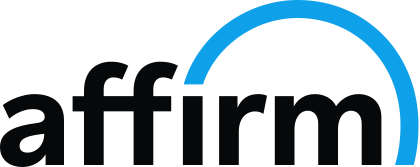 Job hunting can be both daunting and confusing, with contradictory or outdated advice online, making it easy to get overwhelmed. Understanding the job search and how much work goes into it can help manage expectations and alleviate the stress associated with getting hired. Whether you are unemployed, new to the marketplace, or making strategic changes while still employed, your time is precious. Referencing the latest reports on the number of applications you should submit and understanding what hiring managers are looking for can help you focus your efforts effectively.
Job hunting can be both daunting and confusing, with contradictory or outdated advice online, making it easy to get overwhelmed. Understanding the job search and how much work goes into it can help manage expectations and alleviate the stress associated with getting hired. Whether you are unemployed, new to the marketplace, or making strategic changes while still employed, your time is precious. Referencing the latest reports on the number of applications you should submit and understanding what hiring managers are looking for can help you focus your efforts effectively.
How Long Does It Take to Get Hired?
The average job search timeline in the U.S. is approximately 3 to 6 months, based on general industry estimates. Various factors, such as industry, experience, and interviewing schedules, can influence the duration. If you have in-demand skills or are seeking employment during periods of economic growth, the job search may be shorter. However, it’s crucial to be prepared for a potential extended transition period.
How Many Applications Should You Submit?
While it’s recommended to submit 10 to 15 applications per week—roughly two to three per day—the focus should be on quality over quantity. Rather than applying for every position available, concentrate on a targeted job search that aligns with your skills and experience. This reduces the number of irrelevant applications, increasing your chances of finding the best role for you. By narrowing your job search , you have more time to personalize your resume and cover letter, ensuring that your contributions effectively match what the employer needs.
Managing Expectations to Avoid Becoming Overwhelmed
It’s easy to feel overwhelmed by the volume of applications required to land a role, especially if you aren’t receiving responses or positive feedback. One key to managing the job search effectively is maintaining a balance between productivity and quality. Setting a daily goal—such as submitting one to three applications—helps sustain consistency without causing burnout. Maintaining this balance is vital to keeping your motivation and improving your chances of success.
Maximizing Your Resume’s Potential
Customizing each application for the specific role is crucial, particularly as many companies now use Applicant Tracking Systems (ATS). These systems scan resumes and cover letters for keywords that match the job description, filtering out applicants who do not meet the baseline criteria. To avoid being overlooked, ensure that each application is tailored to the job’s requirements by integrating relevant keywords from the job posting. Here are some tips to help you optimize your resume:
- Review the Job Description
Identify key responsibilities, skills, and qualifications mentioned in the job posting. Incorporate these into your resume and cover letter. These areas are where ATS systems and hiring managers will focus.
- Match Keywords
Use relevant keywords from the job description where applicable in your materials. This helps ensure that your documents pass ATS filters and resonate with potential employers.
- Tailor Your Professional Summary
Customize the objective or professional summary section at the top of your resume to reflect the specific role. Mention how your skills align with the company’s mission or the job’s key duties, showcasing your relevance.
- Highlight Relevant Experience
Rather than listing all of your past jobs, focus on those that directly relate to the position you’re targeting. Use examples and metrics whenever possible to illustrate your successes. This targeted approach will not only support your job search but also improve your chances of impressing hiring managers.
- Customize the Cover Letter
Mention the company by name and describe why you are interested in that particular organization or role. A personalized touch demonstrates that you’ve researched the company and are genuinely interested, setting you apart from other applicants.
The Importance of Patience in Your Job Search
Remember, job hunting is a marathon, not a sprint. The job search may stretch over several months, but setting realistic expectations and focusing your efforts increases your chances of finding the right role while minimizing stress. Every application you submit is an opportunity to refine your process and get one step closer to success.
To stay motivated throughout your job search, celebrate small wins, such as securing an interview or receiving positive feedback. These milestones can help boost your morale and keep you focused. Be sure to reach out to others for support, whether from friends, family, or professional networks, as they can provide perspective, guidance, and encouragement.
Using the Job Search Timeline to Your Advantage
One of the best ways to improve your job search is to continually refine your approach based on feedback and results. If you aren’t getting interviews, revisit your resume, cover letter, or networking strategies to see where improvements can be made. Focus on personalizing applications to the job requirements and consider seeking out professional assistance, such as resume writing services, to ensure your documents are the best they can be.
Job seekers often overlook the value of networking as a means to expedite the job search. Connecting with industry professionals, attending networking events, and leveraging platforms such as LinkedIn can open doors that applying alone cannot. Networking allows you to gain insights into unadvertised opportunities and make a positive impression before formal hiring processes begin.
Another aspect to consider during your job search is skill development. Use any gaps in employment to improve or gain new skills relevant to your target industry. Online courses, workshops, and certifications can all be valuable additions to your resume and help you stand out among the competition. These proactive steps can also enhance your confidence as you navigate the job search.
Final Thoughts
Understanding the job search and managing your expectations can make the process less stressful and more productive. By focusing on quality over quantity, customizing each application, and staying proactive in skill development, you can make the most of your job search and secure the right role for you. Remember, finding a job takes time, but every effort you make brings you closer to achieving your career goals.















